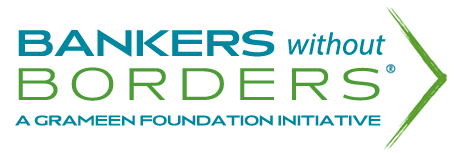Last year, we engaged a team of Wells Fargo employees to provide consulting services to ASHI, a microfinance institution in the Philippines. Here, Global Fellow Agnes Ubalde shares reflections from her time in Manila and her field visits to branch locations, during her third week working with ASHI.
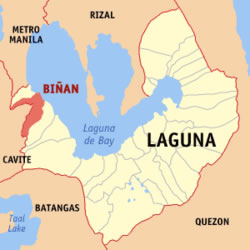 This week I had an opportunity to continue exploring the Philippines both thru the discovery phase of my project with ASHI and with my family. Jerry and I rounded out field visits with ASHI with 2 branch visits with ASHI’s staff in their Metro South East Branch, Biñan Laguna and Rizal West Branch in Antipolo. Both branches included full day trips thru the traffic filled streets of Manila; and landing into both the rural and less-urban filled-locations of Manila. On November, 20 we visited staff from ASHI’s Metro Southeast Branch, Biñan in Laguna.
This week I had an opportunity to continue exploring the Philippines both thru the discovery phase of my project with ASHI and with my family. Jerry and I rounded out field visits with ASHI with 2 branch visits with ASHI’s staff in their Metro South East Branch, Biñan Laguna and Rizal West Branch in Antipolo. Both branches included full day trips thru the traffic filled streets of Manila; and landing into both the rural and less-urban filled-locations of Manila. On November, 20 we visited staff from ASHI’s Metro Southeast Branch, Biñan in Laguna.
Biñan (/b#nja#n/ Filipino: Binyang or Binyan, [bi#an]), officially, the City of Biñan, is a first class component city in the Republic of the Philippines. It is located in the Province of Laguna, on the island of Luzon, about 34 (21 miles) south of Manila, accessible via the South Luzon Expressway (SLEX) and the National Highway. The City of Biñan comes second in Laguna coming from Metro Manila next to San Pedro City. Biñan City, shaped like the number seven (7) on the map (above), covers a total land area of 43.50 square km that represents 2.5 percent of the entire Laguna province. In 2010, Biñan had a total population of 283, 396. It is the fourth most populated in the province, (9.8% of the provincial population) next only to Calamba City (12.66%), San Pedro City (11.42%), and Santa Rosa City (9.92%).
Source: (Philippines Statistics of Authority, Republic of the Philippines).
We unfortunately got a bit lost trying to find the Metro Southeast Branch, but after calling the branch directly to give them our location, we received a personal greeting, from Bryan Verdadero, the Branch Manager who escorted us by motorbike to the branch. Once we arrived, their entire staff including all 5 Development Officers, Accounts Officer and their Area Manager, Olivia Madriaga was on deck to welcome us.
For many of you reading this blog, the branches I have referenced are office sites, nestled in between residential and commercial enclaves; usually designed to both serve as offices for the branch staff with adjacent living quarters for staff. I discovered, this is not an uncommon occurrence for ASHI staff, or Filipinos in general as congestion and traffic to and from work and home force staff to live in their branch resident quarters – which create interesting dynamics to say the least between employees. The branch staff from this location were all fairly new hires/ transfers from other branch locations, and were very shy yet eager to tell their stories – in a mix of Tagalog (one of the primary dialects of the Philippines) & English “Tag-lish”. During this visit, I became the designated translator between Jerry and the staff. While some of the staff tried their best to converse in English, many appreciated the opportunity to openly share their personal and professional journey at ASHI in their native tongue – which was my pleasure to do, as it eased their anxiety in truly sharing their feelings and opinions with us.
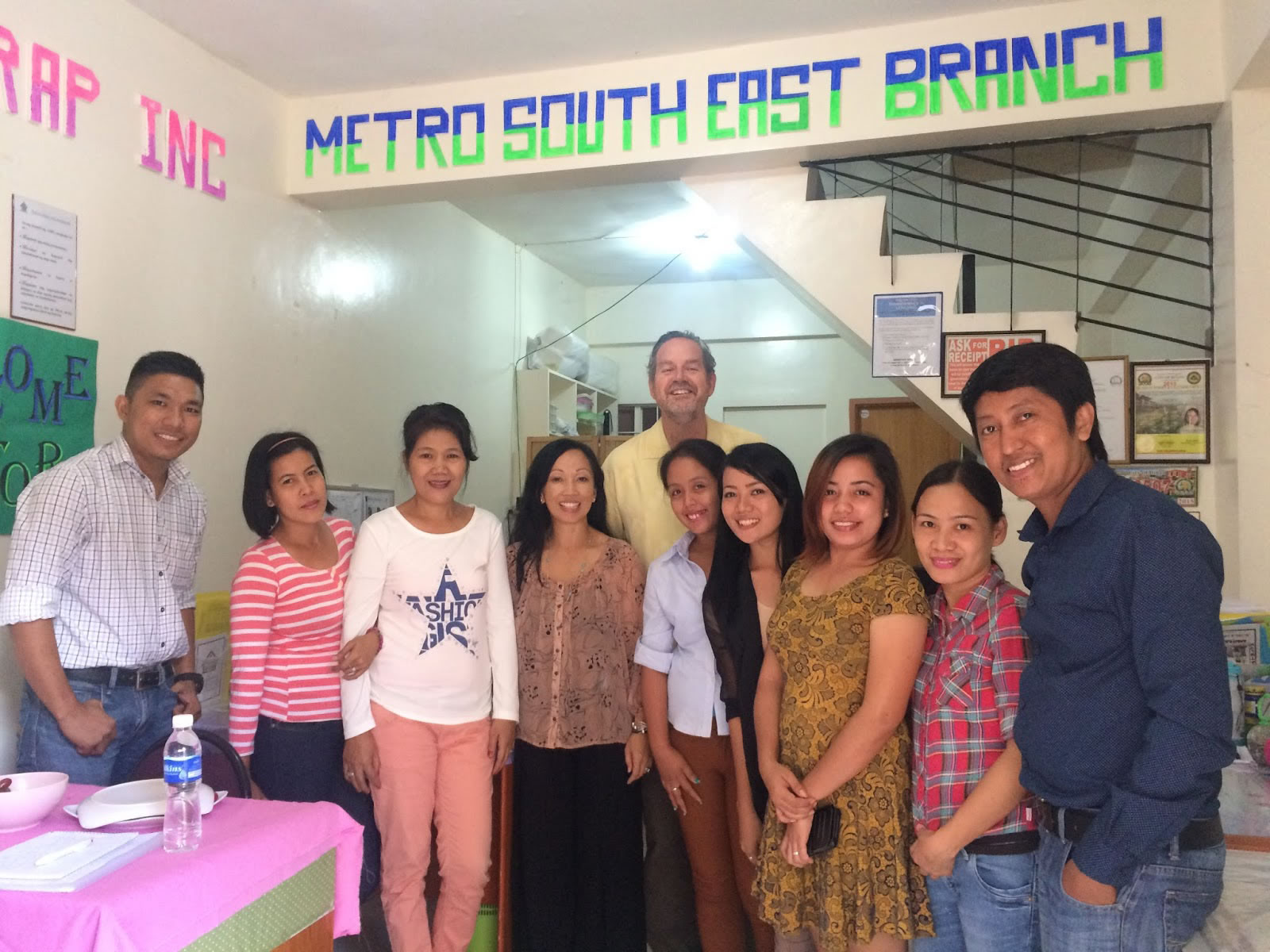
“I believe in empowering my team to learn from each other and the Nanays in the field – it allows them to think creatively and solve problems together” - Olivia Madriaga, Metro South East Branch Manager
Bryan offered a few interesting stories about 5 of his branch member (Nanays) who had significant problems paying back their debts (loans). According to Bryan, one of his members had borrowed and secured a 5,000P ($105US) general loan to invest in a tricycle business with her husband – but the business failed. Motorized tricycles (Shown in the image to the right) or simply tricycles, are an indigenous form of the auto rickshaw and are a common means of public transportation in the Philippines. These public utility vehicles either ply a set route or are for-hire, like taxis. Passenger tricycles can accommodate from four passengers up to as many as 9 or more, excluding the driver. Goods can be placed on the roof. One or two passengers can sit behind the driver while several more can sit in the sidecar, depending upon the design.
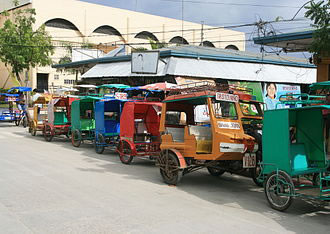
The member’s husband was the person in the family who had the tricycle business and during one of his recent drives, was pulled over by the local police for a random violation and they discovered he was driving without a current license - and because of this his tricycle was taken away from him. The issue here was the husband had notrenewed his license and had been driving illegally for a significant time, so he had been collecting many fines that amounted into a huge debt in itself, which was so high that it was not feasible for him to pay that debt-off and therefore lost the entire business. Additionally, this Nanay had 9 children to support and this unfortunate constraint to ensure the business could continue; was not identified until it was too late.
When we asked Bryan, what happened to this Nanay and her husband’s business, he shared that he and his Development Officer staff did not pressure this member to pay back her debt and despite the group members not being able to help due to their own financial struggles; he and his staff went outside of their own scope of duties to find alternative employment (upon her request) for this Nanay to survive. Bryan’s story about this member adds to the continuous heart-wrenching struggles of many of the poor in the Philippines; but despite their struggles as Bryan shared, he along with his team seem to never give up on these women and their families. Here is where we begin to see that consistent theme that: ASHI’s staff loyalty and passion for mission drives them to serve the poor.
Bryan’s Branch Office Development Officers, shared some of their own personal stories and observations about their experiences with their members and in particular the dynamics they face with interacting with members from rural vs. urban environments. In the urban areas, like the Biñan, Laguna region, Development Officers are challenged by members who are “NPA” – and NO this does not stand for the New People’s Army – or the armed wing of the Communist Party of the Philippines, but rather it is when members have “No Permanent Address” or are living as squatters, or living in non-permanent housing in the scattered barangay’s (neighborhoods) in Binãn.
Development Officers (DOs), like Susana, shared that in order to help provide support to members and their families, they have to go door-to-door each day in conditions that are severely undeveloped shanties, on dirt roads and dark spaces, with members sometimes treating them with disdain and aggression because they are unable to pay their debts – either due to hardship or sometimes because their initial ideas for businesses just do not succeed. Well, for many of these DO’s like Susana, a 21 year-old female right of college, wandering the barangay in the evening and even during the day; going door-to-door and searching for her members to support is not the most ideal scenario. However, to her and many of the ASHI DO’s and staff, she believes in the ASHI mission to bring banking to the poor, even despite the barriers they face and constraints of the job. That’s customer service for you!
Our aim as Global Fellows is starting to make more sense. Staff spend endless hours of paperwork, manual recording and tracking of members debts, profiles (demographic details), attendance records, loan proposals…the list goes on and on. Jerry and I would never have understood this challenge, had we not gone into their communities and spaces to hear their stories (both the challenges and successes). Susana, shared that the Nanay’s who travel from rural areas, are less aggressive and inclined to receive support and advice from the DO’s and branch staff; because members have reaped the benefits of the natural resources to build & grow their businesses (e.g. livestock and rice – which are the most common industries). However, members once they start seeing some impact of their businesses, assume the city urban life is much better; and to avoid what the natural calamities-in their rural settings, such as typhoon’s and floods, devastating their businesses and livelihood each year – they try to flee to the urban city, with false expectations of success for themselves and families.
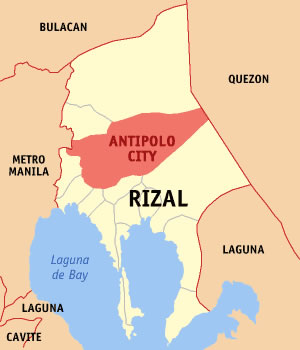 Our next visit was a few days later on November 24th was to the Rizal West Branch in Antipolo. Antipolo City, officially the City of Antipolo (Filipino: Lungsod ng Antipolo), is a city in the Philippines located in the province of Rizal; about 25 (16 miles) east of Manila. It is the largest city in the CALABARZON Region. It is also the seventh most populous city in the country with a population of 677,741 in 2010. The city is popular for being a pilgrimage site. It prides itself as the "Pilgrimage Capital of the hilippines." The Marian image of the Our Lady of Peace and Good Voyage or the Virgin of Antipolo, which was brought in from Mexico in 1626, and enshrined in the Antipolo Cathedral, has a continuous following among Filipino Catholics since the Spanish era. Its higher elevation than that of Metro Manila affords it a scenic view of the metropolis, especially at night. Its locally grown mangoes and cashews are popular among tourists, as well as suman – a local delicacy made out of glutinous rice (Source: Wikipedia), and one of my childhood favorite desserts that my paternal grandmother would make and serve warm, and dashed with butter, sugar and shaved coconut topping.
Our next visit was a few days later on November 24th was to the Rizal West Branch in Antipolo. Antipolo City, officially the City of Antipolo (Filipino: Lungsod ng Antipolo), is a city in the Philippines located in the province of Rizal; about 25 (16 miles) east of Manila. It is the largest city in the CALABARZON Region. It is also the seventh most populous city in the country with a population of 677,741 in 2010. The city is popular for being a pilgrimage site. It prides itself as the "Pilgrimage Capital of the hilippines." The Marian image of the Our Lady of Peace and Good Voyage or the Virgin of Antipolo, which was brought in from Mexico in 1626, and enshrined in the Antipolo Cathedral, has a continuous following among Filipino Catholics since the Spanish era. Its higher elevation than that of Metro Manila affords it a scenic view of the metropolis, especially at night. Its locally grown mangoes and cashews are popular among tourists, as well as suman – a local delicacy made out of glutinous rice (Source: Wikipedia), and one of my childhood favorite desserts that my paternal grandmother would make and serve warm, and dashed with butter, sugar and shaved coconut topping.
The Rizal West Branch is one of ASHI’s edium-sized branches, nestled in between a residential enclave in Rizal. We were greeted by the Development Officers, their Branch Manager and their Area Manager, Bayani “Bryan” Masquiat, Jr., a former lay minister and one of the oldest pioneers of the ASHI staff. Bryan as he wished to be called, after 22 years of service with ASHI is now running for Citycouncil in his barangay of Jalajala, Rizal – so he will transition out of his post in a few months. He also started out as a Development Officer, with the goal of serving the underserved. While he shared that his jobs as a Development Officer, to an Accounts Officer to now an Area Manager has not been easy; it has been overwhelmingly fulfilling and requires a deep passion to service and commitment.
When asked what some of his challenges have been in his role, he responded by stating that marketing what ASHI does in the barangay “neighborhood” can be difficult; especially when the NGO is not certified with the Local Government Unit (LGU). “ Fortunately, our branch here in Antipolo is certified, so the members can avail resources for themselves and their families” stated Bryan. “For example, the Technical Education and Skills Authority (TESDA) were established by the national government to provide out of school youth with the technical and vocational skills to offer youth certificates to achieve employment in a variety of fields such as: agriculture, business, nursing, engineering etc.” What great workforce development opportunity for many of the Nanay’s who have children I thought – and of course, as a Community Development Officer for Wells Fargo – this TESDA option and many more available (livelihood programs) to local members was music to my ears, as I think ASHI and their members can truly leverage the support of their local LGU’s , and re-align some staff functions to assign their own dedicated Community Relations/Community Development team to connect folks to resources! Bryan, was truly excited about this idea and Jerry and I plan to explore this recommendation with ASHI’s Operations Department this week.
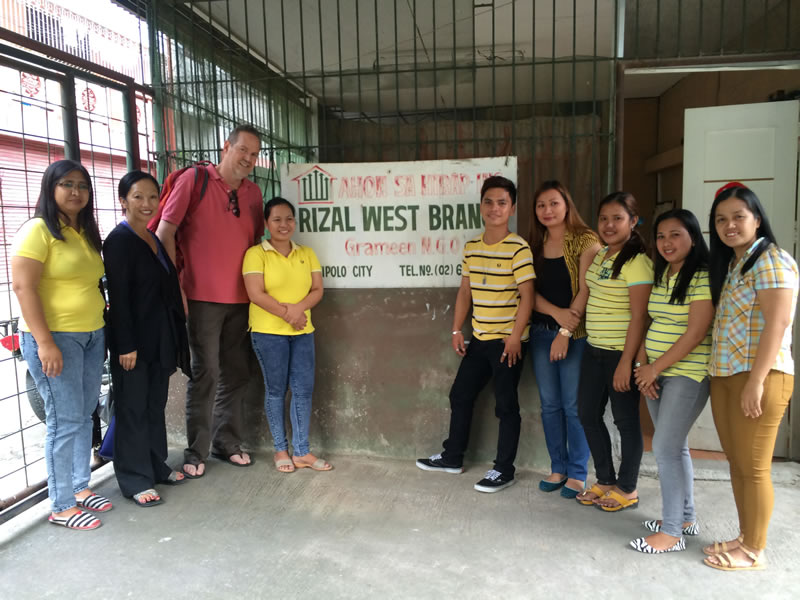
When asked what some of his challenges have been in his role, he responded by stating that marketing what ASHI does in the barangay “neighborhood” can be difficult; especially when the NGO is not certified with the Local Government Unit (LGU). “Fortunately, our branch here in Antipolo is certified, so the members can avail resources for themselves and their families” stated Bryan. “For example, the Technical Education and Skills Authority (TESDA) were established by the national government to provide out of school youth with the technical and vocational skills to offer youth certificates to achieve employment in a variety of fields such as: agriculture, business, nursing, engineering etc.” What great workforce development opportunity for many of the Nanay’s who have children I thought – and of course, as a Community Development Officer for Wells Fargo – this TESDA option and many more available (livelihood programs) to local members was music to my ears, as I think ASHI and their members can truly leverage the support of their local LGU’s , and re-align some staff functions to assign their own dedicated Community Relations/Community Development team to connect folks to resources! Bryan, was truly excited about this idea and Jerry and I plan to explore this recommendation with ASHI’s Operations Department this week.
